- Home
- Rebecca York
Flight of the Raven Page 6
Flight of the Raven Read online
Page 6
The general stroked his chin. “You accepted certain risks, Major Rozonov, when you joined our ranks.”
“Granted. But I’d be happier about this project if you would document your orders and put them in my file.”
Bogolubov shrugged. “As you wish.”
“Thank you, Comrade General.” Aleksei’s tone of voice was deferential but both men knew who had won that round.
* * *
BRADLEY FITZPATRICK zipped up the black evening bag that had been dumped downtown in a Madrid mailbox and returned to the U.S. embassy by the Spanish civil guard Sunday morning.
According to the inventory Julie had given him, nothing inside was missing except the ten thousand pesetas she’d tucked into her wallet. However, the lining of the bag had been carefully slit in several places, as though the thief had been searching for something hidden inside. And when Fitzpatrick began to look more closely, he noted that her identification card was bent, as though it had been hurriedly stuffed back into its plastic holder. He’d seen his share of personal belongings returned to American citizens via the mail once the cash and values were removed, but the condition of this purse and wallet didn’t match the scenario of a simple robbery.
His mind flashed back to the note of panic in Julie’s voice when she’d called him from the Gran Via Friday night. Then he’d put it down to the stress of having been victimized.
Lord, he thought. Last Thursday Cal Dixon had called him in and made some pretty nasty allegations about Dan Eisenberg before firing off a barrage of questions about Julie’s relationship with the captain. Fitzpatrick had practically laid his career on the line defending her. Now he had to wonder exactly what the hell was going on.
Sighing, he picked up the phone. He had no choice but to call Cal.
Forty-five minutes later, Eduardo buzzed Julie’s apartment to tell her two colleagues from the office were downstairs. The Sunday paper was spread across the kitchen table, and she hadn’t yet bothered to get dressed.
“Send them up in five minutes,” she instructed the portero. By the time the knock came at the door, she was tucking a plaid shirt into the waistband of her jeans.
“Fitz, Cal?” Julie peered into the hallway, looking from one unreadable face to the other. A wave of apprehension suddenly made her feel cold in the cotton shirt she wore. “What’s happening?”
“We’ve come to take you for a walk, Julie,” Fitz replied, his voice vaguely apologetic.
“A walk?” What in the world was going on?
“In Retiro Park,” Cal added.
The well-groomed area with its wide paths, gardens, and lake was one of her favorite parts of the city. But from the tone of Cal’s voice and the somber expression on the two men’s faces, she suspected she wasn’t going to enjoy this particular Sunday outing.
Chapter Five
“Just let me get my purse.”
Cal and Fitz exchanged cryptic looks.
“Maybe you’d like to put your wallet in it,” the CIA man murmured.
She whirled to face him. “Was the evening bag returned?”
“Yes.”
Fitz offered her the brown paper bag that had been tucked under his arm.
When Julie reached inside, the purse was missing. Only its contents were there.
“Where...?”
Cal answered the question before she’d framed it. “We’ve sent it out to be cleaned.”
Oh, no, she thought. The cleaners was the code word for the forensic lab at Torrejon. She’d almost convinced herself that she’d been the victim of a simple robbery. Now she knew Cal Dixon didn’t think so. The realization made it suddenly hard to catch her breath. There were a dozen excuses she wanted to make and questions she burned to ask. But not until it was safe to talk.
Cal, who was dressed in a navy jogging suit, nodded to Eduardo as the threesome crossed the lobby. In their casual attire, they looked as though they might have been going out for a Sunday stroll. But from Julie’s perspective, with a large man at either shoulder, she felt as though she were heading for her own execution.
Though she had planned to talk with Cal first thing Monday morning, it was obvious the CIA man wanted some answers now.
She stole a quick glance at Fitz. From the tight look on his familiar freckled face she could tell Cal had already convinced him she had made a serious breach of security.
Only the inevitable Sunday choir music on the radio broke the silence as they rode down Paseo de la Castellana and turned off on Calle Alcala.
As they got out of the car and approached the park’s decorative iron fence, Julie could see dozens of Madrilenos enjoying the warm morning sunshine before the day grew too hot for more than sitting at one of the shaded café tables with a cold beer.
Many of the strollers were still wearing their Sunday best. Others had changed into jeans and casual shirts. She and her escorts didn’t look out of place.
It wasn’t until they had passed through the wide gates, and Cal had set a moderate pace, that he came to the point.
“Your bag was stolen and searched by professionals, Julie. Why?”
She glanced left toward Fitz. He kept his eyes straight ahead, his lips clamped together.
“I don’t know.” Though she tried to remain calm, her voice was quavery and barely above a whisper.
“Come on. You must have some clue.”
She sighed. “I was going to tell you about this tomorrow anyway.”
“Sure.”
“Keep it civil, Dixon,” Fitz broke in. She felt his shoulder press against hers for just a moment.
The small gesture made her turn to him. “Fitz, do you remember when I went through Dan’s office drawers?”
“Yes. You said you didn’t find anything important.”
“That’s right. But there was a theater ticket that matched an odd notation on Dan’s calendar.”
She wished Fitz would say something. Across the wide lawn, the strains of a guitar reached the threesome. “I put the ticket into my pocket and forgot all about it—until after Cal grilled me in his office. I suppose I should have given it to him the next morning. But I wanted to prove to myself that it was something innocent.”
“But it wasn’t, was it?” the consular officer interjected.
“No.”
“In fact, I’ll bet you found other notations on Dan’s calendar that look ‘odd.’”
“Yes.” Damn the man!
“Who was Dan meeting Friday?” Cal pressed.
“There was an empty seat next to his, but no one claimed it.”
“Then what had you so frightened that you didn’t tell Fitz about it when he came to pick you up after the robbery?”
“Someone I recognized was sitting in back of the two seats.”
“Who?”
“One of the KGB agents in your mug book.”
Cal swore under his breath, but the imprecation held a strange note of triumph. “I knew it.”
“Who was it?” Fitz questioned.
“Aleksei Rozonov.”
“The cultural attaché?”
“Yeah, he’s one of their top boys,” Cal said. “This is going to be very tricky,” he added to himself.
Julie felt as though a weight had been lifted off her shoulders. Why hadn’t she come to Cal in the first place? He was a lot better equipped to deal with this sort of thing than she. “I’ve hardly been able to sleep since Friday night,” she admitted.
“Tell me what happened and don’t leave anything out,” Cal directed.
She hesitated for a moment. So much of the encounter had been in nuances she didn’t want to examine too closely. Yet her sense of being in danger had been very real. “I could feel him watching me at the intermission. Then, just before the third act started, he came up and asked me how I was enjoying the play, but it wasn’t a casual conversation. I felt he was looking for something.”
“That was it?” Fitz prompted. He sounded relieved, as though he’d expected her to admit g
oing off into a corner with the man and exchanging secret documents.
Cal continued the interrogation. “What did you think of Rozonov?”
“Intelligent. Polished. Dangerous.” Darkly handsome. Devastatingly sexy. Too confident. Her response to the Russian had been powerful and disturbing. That put her in an even more precarious position than merely using Dan’s theater ticket. But she wasn’t about to share the insight with Cal.
They had reached a little circle called the Plaza de Nicaragua. In the center was a fountain decorated with dolphins and cherubs. A sudden shift in the wind sent the spray in their direction. Cal put his arm up to shade his face but Julie welcomed the cool mist of water. When she turned to face the fountain, he grasped her forearm and steered them back in the direction of the lake. Fitz wheeled with them as though they were in military formation.
“We’ve got to find out what Eisenberg was up to and why the Russian is interested,” Cal said.
“Maybe Dan was doing some sort of government undercover work,” Fitz suggested.
“If that were true, I’d know about it,” Cal snapped. “Get it into your head that the man was involved in something unsavory. And I’m going to find out what it was.” He was silent as they skirted the crowd at the edge of the lake, where street vendors were selling trinkets and candy. When they’d gained one of the less traveled jogging paths, he turned to Julie.
“Aleksei Rozonov thinks you know something.”
“But I don’t.”
“That’s beside the point.”
“Cal, I don’t want to get involved in whatever this is.”
Fitz sighed. “I’m afraid you got involved when you used that ticket.”
She’d been worrying about that since Friday night. Now it was out in the open. “Can’t someone else handle it from here on out?”
“I’d like nothing better than to put a professional on the case. But it would tip our hand to switch dancers in mid-waltz, so to speak,” Cal pointed out.
“And it’s vital that we find out what’s going on,” Fitz added.
Julie took a deep breath. “Then, what am I going to have to do?”
“Get to know Rozonov a little better.”
An image of a sacrificial goat tethered to a stake leaped into her mind. Her heart started to pound. From the moment the Russian’s icy blue eyes had locked with hers, she had known the man was a threat. She had sensed danger and intrigue swirling around him like demons in a mist. But her apprehension had been on a personal level as well. Even though their encounter had been brief, she had felt a dark attraction pulling her toward the man. It had made her want to run the other way. Now—my God!—Cal Dixon was practically throwing her at him.
* * *
IT HAD BEEN a long time since he had prowled the marble galleries of the Prado, the former palace that housed Spain’s national art collection. Now, as so often in the past, the Raven’s footsteps brought him to the paintings of Hieronymus Bosch, the fifteenth-century Dutch master whose works had been collected by Philip II.
Bosch had been obsessed with retribution for sin—like some of the great Russian novelists. But his artistic expression was so startlingly different. His huge canvases were often divided into several parts, some depicting in intricate detail throngs of men and women enjoying the pleasures of the flesh. Other equally elaborate sections illustrated their eternal tortures in hell. Bosch liked to make the punishment fit the crime. The Raven’s eyes were drawn particularly to the men falling under the blade of a long, phallic looking knife and the woman whose naked ivory skin was being fondled by the spidery claws of a green monster.
He could easily picture Bosch exchanging creative ideas with the twentieth-century torture masters who ran the Gulag Archipelago, the chain of prison camps where so many Soviet citizens had disappeared. The thought made a sudden chill dance down his spine. If his own sins against the state were discovered, he’d rot in the Russian version of hell. That was a risk he’d chosen to take, but still, Bosch’s graphic nightmares disturbed him.
Turning away, he headed toward the Rubens collection, knowing that less moralistic subjects would lift his spirits. The amply endowed females the painter had favored reminded him of many of his countrywomen. But a Russian painter would have covered them in furs and heavy garments rather than mere wisps of lace.
To even the most alert observer, his progress through the crowded galleries would seen random. He might be just another tourist taking in Madrid’s most celebrated cultural attraction. But he was really making his way toward a little-used stairway at the west end of the building. Just above the ground floor, a piece of marble molding was loose. Behind it, was the dead drop where he and Peregrine agents had left material for each other before the net around him had begun to tighten. On his way down it was impossible to stop because there were a number of people on the stairs. So he passed by the drop and went to look at some of the Flemish baroque paintings. Fifteen minutes later the stairwell was clear, except for a man holding the hand of a small girl. After waiting until they were out of sight, the Raven reached down quickly, slid the piece of marble aside, shoved an envelope into the opening, and replaced the marble. Then he strolled back to the main floor and out of the museum. In keeping with his tourist pose, he turned in the direction of the smaller building several blocks away that housed Picasso’s famous Guernica.
The information he’d left was merely a test of the communications link with the Falcon—a photocopy of the embassy’s confidential telephone directory, information that would be of minor use to the West. Since the material could have been supplied by anyone on the staff, it wouldn’t point an incriminating finger at him. Now he’d just have to wait and see what sort of return message appeared in the clandestine mailbox.
The strategy was sound. But waiting was like sitting on top of a live grenade that could go off at any minute.
* * *
JULIE TOOK two 100-peseta notes from her evening bag and handed them to the cabdriver. After withdrawing her party invitation, she stepped out onto the sidewalk and allowed the folds of her long burgundy dress to settle gracefully into place. Then she made her way toward the high wall that shielded Byne House from view.
She’d attended only a few previous soirees at the mansion. The occasions had simply been an extension of her business dealings with officials in the Spanish government. This evening was still business, but of quite a different type. It was to be her first contrived meeting with the Russian spy. The assignment had her nerves stretched taut. To calm them, she forced herself to think about the opulent setting rather than the dangerous man she’d been sent here to meet.
Byne House was actually a small palace and one of the most carefully preserved legacies of Madrid’s elegant past. Ironically, it had been the home of an expatriate New York millionaire, Arthur Byne, whose widow had willed it to the United States. Now it was the official residence of the embassy’s second-in-command, Henry Sloane, and his wife Margaret.
Much of the American’s diplomatic entertaining took place in its gracious public rooms and gardens. Tonight Byne House was the scene of a reception for the highly acclaimed Philadelphia Opera, which was mounting its first European tour. Though the opera singers had been well reviewed by the Madrid press, Raphael Conti, the flamboyant artistic director, had stolen the show. When Paula and the other staffers in Julie’s section had learned she was attending the reception for him and the rest of the cast and orchestra, they’d been jealous. Word had it that her uncle’s political connections had procured her the invitation. She’d been grateful for the misconception.
Because Aleksei Rozonov had known Conti in New York, there had been no questions asked when the Russian cultural attaché had been added to the invitation list. Cal Dixon had called Julie to his office to apprise her of the game plan.
“Rozonov must be anxious to renew his friendship with Conti. They went to high school together in New York, and by all accounts, they were quite a pair. I see from the Russian’
s file”—which had expanded by at least an inch since the last time Julie had seen it—”that they once took the Conti limousine for a joy ride into Canada. If Rozonov’s father hadn’t pulled some strings, that stunt would have gotten Aleksei Iliyanovich sent back to school in Moscow.”
It was hard for Julie to picture the man with the penetrating ice blue eyes participating in such a prank. But the KGB agent, like everyone else, must have been young once. Quickly she blocked out the mitigating thought. Rozonov was the enemy, and the only safe course was to keep reminding herself of that fact.
Julie knocked on the heavy wooden door and waited while a tuxedoed butler carefully inspected her engraved invitation. She knew the precaution wasn’t simply to keep out gate-crashers. For the safety of the high-level diplomats gathered here, security had to be stringent, even if it was disguised in gracious party regalia.
The gate opened into the garden and Julie stood for a moment surveying the glittering scene. Men and women dressed in evening clothes were gathered in small groups, chatting casually. Waiters circulated among them with silver trays of champagne and canapés. The courtyard was illuminated by lanterns strung between the trees.
Margaret Sloane, dressed in a stunning ivory gown, was welcoming guests as they arrived.
“I’m so glad you could join us this evening,” she said. “You know your way around, don’t you, my dear?”
Julie nodded. Her background had well prepared her to mix and mingle with the high-society crowd. She’d learned early from her mother that in social situations you did what was correct, not necessarily what was natural.
She brought a courteous yet slightly reserved smile to her face as she complimented her hostess on the setting before moving into the garden.
A waiter stopped to offer her a glass of champagne, but she declined and asked where she could find the bar. A glass of club soda with a twist of lemon was more appropriate to the evening’s game plan.
As she made her way along the circular path that skirted the small fountain, she passed Ambassador Thomas, enjoying an animated conversation with one of the featured sopranos, Geraldine Lowery. The tall, distinguished-looking man glanced up at his young staffer, seemed momentarily surprised, and then nodded a greeting. She returned the salutation with an automatic smile. Although she’d been afraid to ask, she suspected that Cal was running this operation without the knowledge of the embassy’s senior staff. Now that suspicion was even stronger.

 Escape Velocity (Off-World Series, Book 7): Sexy Science-Fiction Romance Novel
Escape Velocity (Off-World Series, Book 7): Sexy Science-Fiction Romance Novel Hunter (Decorah Security Series, Book #20): A Paranormal Romantic Suspense Novel
Hunter (Decorah Security Series, Book #20): A Paranormal Romantic Suspense Novel Christmas Miracle 1935
Christmas Miracle 1935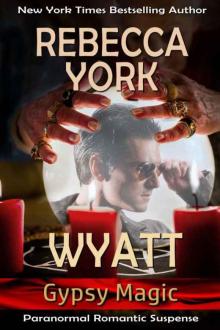 Wyatt
Wyatt Unforgettable Christmas Dreams: Gifts of Joy
Unforgettable Christmas Dreams: Gifts of Joy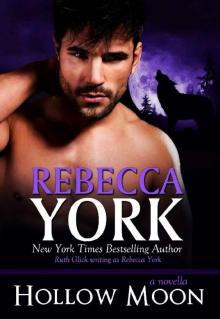 Hollow Moon
Hollow Moon Cursed: Decorah Security Book #21
Cursed: Decorah Security Book #21 Bedroom Therapy
Bedroom Therapy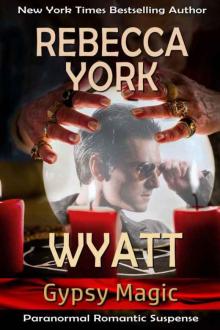 Wyatt (Gypsy Magic Book 1)
Wyatt (Gypsy Magic Book 1) DIAGNOSIS: ATTRACTION
DIAGNOSIS: ATTRACTION Can She Get Home for Christmas
Can She Get Home for Christmas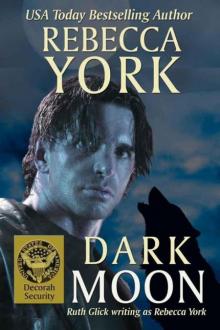 Dark Moon
Dark Moon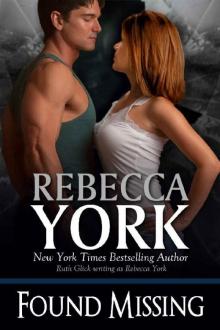 Found Missing (Decorah Security Series, Book #14): A Paranormal Romantic Suspense Novel
Found Missing (Decorah Security Series, Book #14): A Paranormal Romantic Suspense Novel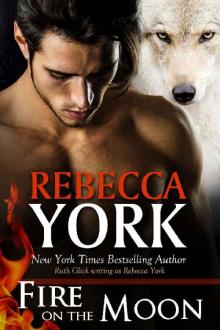 Fire on the Moon
Fire on the Moon Dark Powers
Dark Powers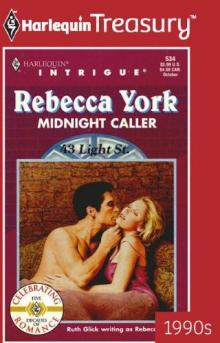 Midnight Caller
Midnight Caller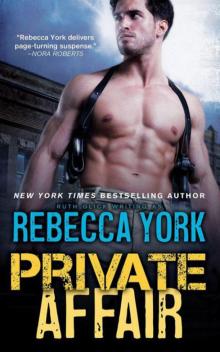 Private Affair
Private Affair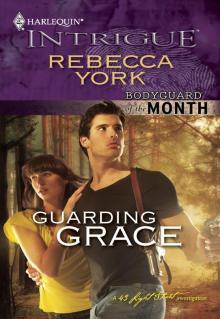 Guarding Grace
Guarding Grace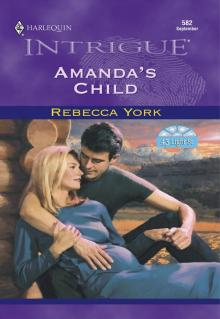 Amanda's Child
Amanda's Child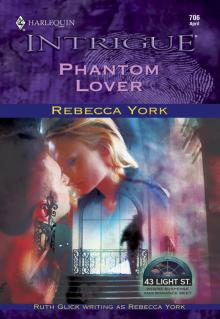 Phantom Lover
Phantom Lover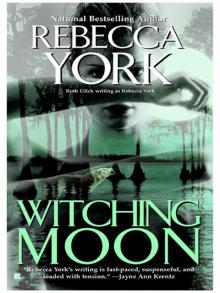 Witching Moon
Witching Moon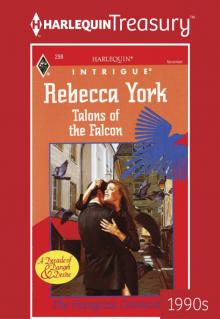 Talons of the Falcon
Talons of the Falcon Conquest (A Fantasy & Futuristic Romance Short Story)
Conquest (A Fantasy & Futuristic Romance Short Story)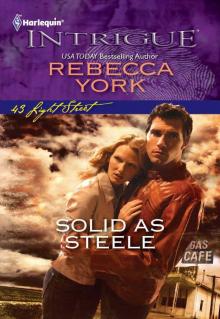 Solid as Steele
Solid as Steele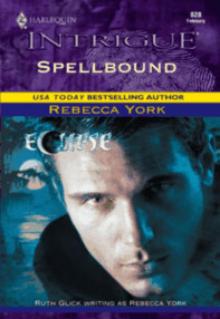 Spellbound
Spellbound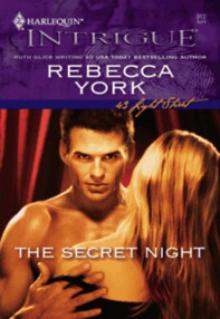 The Secret Night
The Secret Night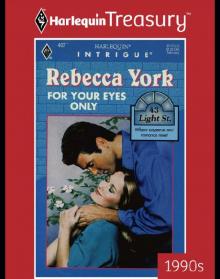 For Your Eyes Only
For Your Eyes Only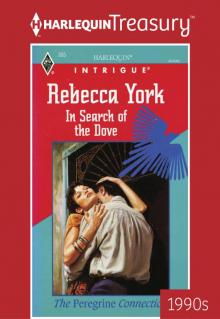 In Search of the Dove
In Search of the Dove Christmas Spirit
Christmas Spirit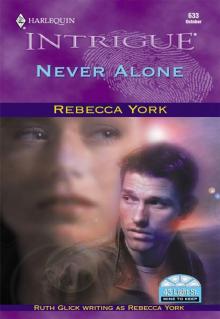 Never Alone (43 Light Street)
Never Alone (43 Light Street)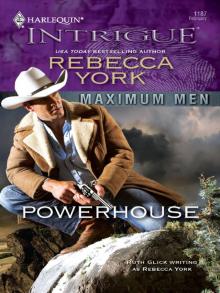 Powerhouse
Powerhouse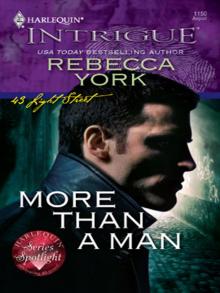 More Than a Man
More Than a Man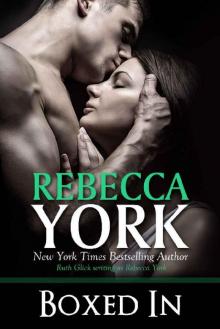 Boxed In (Decorah Security Series, Book #16): A Paranormal Romantic Suspense Novel
Boxed In (Decorah Security Series, Book #16): A Paranormal Romantic Suspense Novel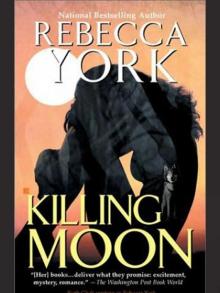 (Moon 1) - Killing Moon
(Moon 1) - Killing Moon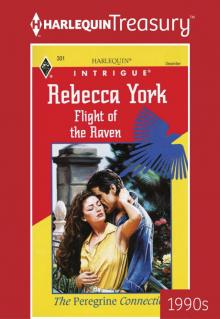 Flight of the Raven
Flight of the Raven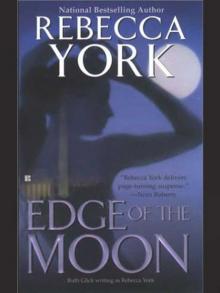 (Moon 2) - Edge of the Moon
(Moon 2) - Edge of the Moon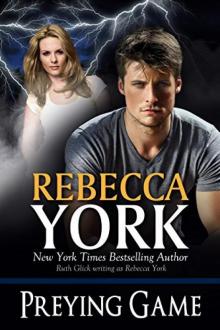 Preying Game (Decorah Security Series, Book #15): A Paranormal Romantic Suspense Novel
Preying Game (Decorah Security Series, Book #15): A Paranormal Romantic Suspense Novel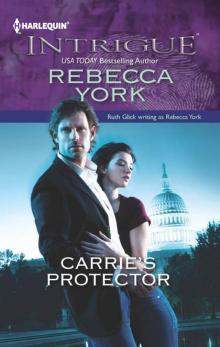 CARRIE'S PROTECTOR
CARRIE'S PROTECTOR Bad Nights
Bad Nights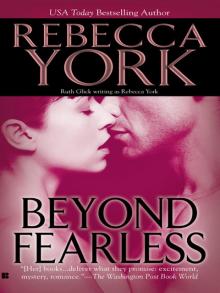 Beyond Fearless
Beyond Fearless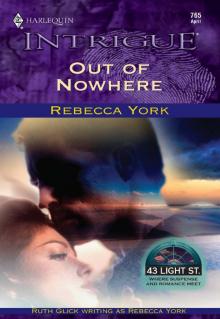 Out of Nowhere
Out of Nowhere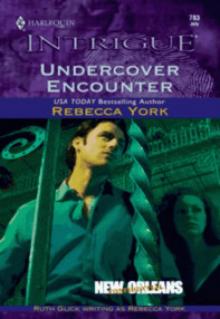 Undercover Encounter
Undercover Encounter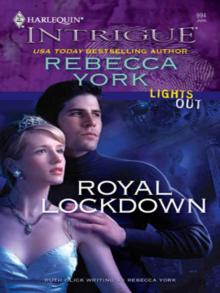 Royal Lockdown
Royal Lockdown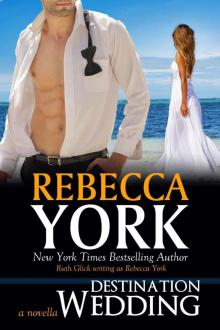 Destination Wedding
Destination Wedding Chain Reaction
Chain Reaction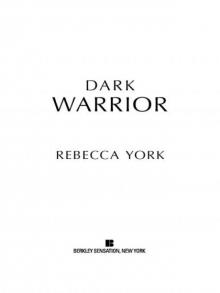 Dark Warrior
Dark Warrior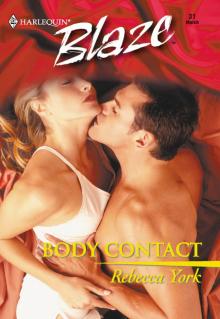 Body Contact
Body Contact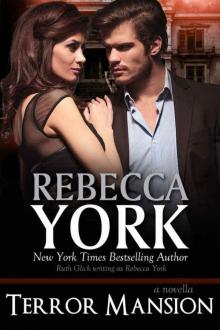 Terror Mansion (Decorah Security Series, Book #12): A Paranormal Romantic Suspense Novella
Terror Mansion (Decorah Security Series, Book #12): A Paranormal Romantic Suspense Novella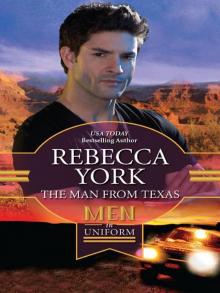 The Man from Texas
The Man from Texas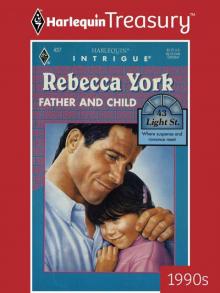 Father And Child
Father And Child THE OFF WORLD COLLECTION (Short, Steamy Science Fiction Romances) (Off-World Series)
THE OFF WORLD COLLECTION (Short, Steamy Science Fiction Romances) (Off-World Series) Sudden Attraction
Sudden Attraction Bedroom Therapy: A Hot Romantic Suspense Novel
Bedroom Therapy: A Hot Romantic Suspense Novel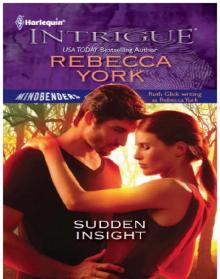 Sudden Insight
Sudden Insight Hero's Welcome (A Fantasy & Futuristic Romance Short Story)
Hero's Welcome (A Fantasy & Futuristic Romance Short Story)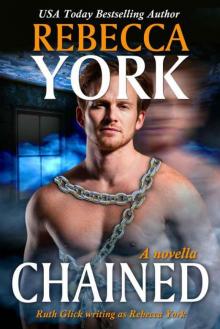 Chained
Chained Desperate Magic
Desperate Magic Outlaw Justice (Decorah Security Series, Book #13): A Paranormal Romantic Suspense Novella
Outlaw Justice (Decorah Security Series, Book #13): A Paranormal Romantic Suspense Novella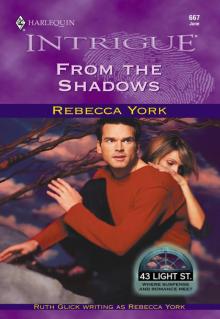 From the Shadows
From the Shadows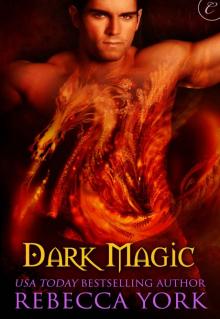 Dark Magic
Dark Magic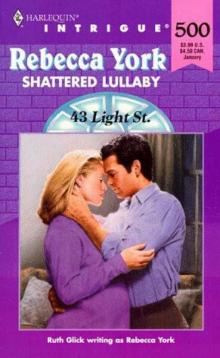 Shattered Lullaby
Shattered Lullaby Hot and Dangerous (Decorah Security)
Hot and Dangerous (Decorah Security)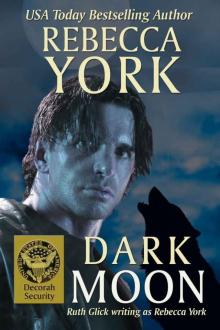 DARK MOON (Decorah Security)
DARK MOON (Decorah Security)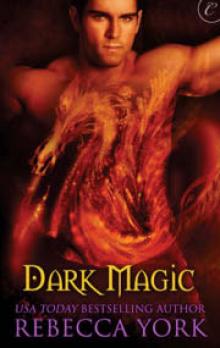 Shattered Magic
Shattered Magic Hot off the Presses
Hot off the Presses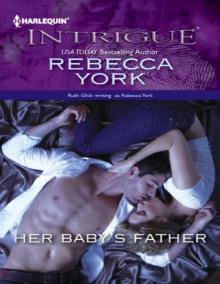 Her Baby's Father
Her Baby's Father Hunting Moon (Decorah Security Series, Book #11): A Paranormal Romantic Suspense Novel
Hunting Moon (Decorah Security Series, Book #11): A Paranormal Romantic Suspense Novel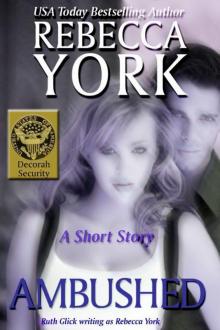 AMBUSHED
AMBUSHED Betrayed
Betrayed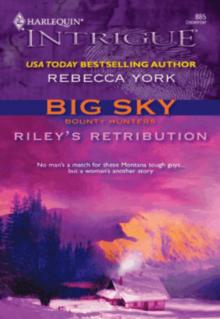 Riley's Retribution
Riley's Retribution Cradle and All
Cradle and All BRIDAL JEOPARDY
BRIDAL JEOPARDY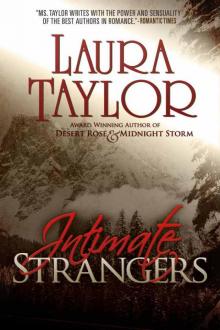 Intimate Strangers
Intimate Strangers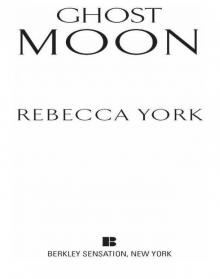 Ghost Moon
Ghost Moon